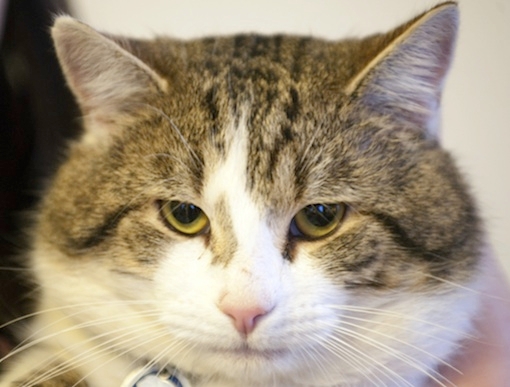Would you rent out your cat? What about your lawnmower? Or your driveway?
That first one may not be practical but new research shows that, as a nation, we are embracing the sharing economy, whether that’s pets, home appliances or our living spaces.
It’s good to share. My sister has instilled that virtue in her young daughter although, admittedly, neither her nor I were very good at it when growing up. I recall many arguments over weekly deliveries of Just Seventeen magazine, not to mention rows about favourite toys and treasured books.
Maybe if money had changed hands, we would have been better at sharing? According to Lloyds Bank Insurance, last year a third of UK adults engaged in sharing economy transactions with one in 10 unlocking the earning potential of their assets by offering shared services themselves.
The latest Britain at Home report from Lloyds also found that of the adults who have embraced the sharing economy, nearly a third are looking to increase or maintain the same level of usage of these services in the future.
In fact, those people sharing their homes or property are so confident in the sharing economy’s lasting appeal they are making investments in order to maximise their earning potential: over a fifth have made adaptions to their home in order to rent it out, and a similar number have purchased items with the sole intention of renting them out.
So, what are the most popular shared items and services? Not surprisingly, property tops the list, whether that’s a single room or an entire house on a short-term let. Vehicles come next followed by property again, this time for long-term letting. After that it’s a parking space.
I’m not sure I’d be happy having strangers in my house or a random car on my driveway. And given how many people behave behind the wheel, I’d be reluctant to rent out my Fiesta. But there is money to be made in this business. For example, the average annual earnings from renting out accommodation comes in at £411, a car yields £118, and even the family pet generates £116. I assume ‘family pet’ refers to a dog. I can’t imagine my cat being too happy with a new owner, even on a temporary basis. And I don’t suppose there’s much demand for goldfish.
Anthony Eskinazi is the chief executive of JustPark, a company which connects drivers with thousands of underused parking spaces across the UK. He said: ‘Participation in the sharing economy shows no signs of slowing, and it’s easy to see why – it offers consumers cheaper, more flexible alternatives to traditional business models, while providing an opportunity to generate income from underused assets.’
According to Lloyds, many consumers who choose the sharing economy do so to save money while one in five adopt a ‘waste not, want not’ approach; renting an item they will only use once makes more sense than shelling out cash to buy it. Meanwhile, 16 per cent believe sharing has a positive environmental impact.
I’m all for the sharing economy, even if some elements may not be for me. I suspect my mum wishes me and my sister had been fans when we were young. That, at least, would have saved her a few quid – sick of weekly rows, she ended up buying duplicate copies of Just Seventeen for years.
Helen Nugent is Online Money Editor of The Spectator






Comments